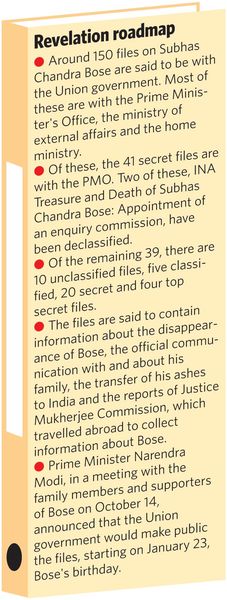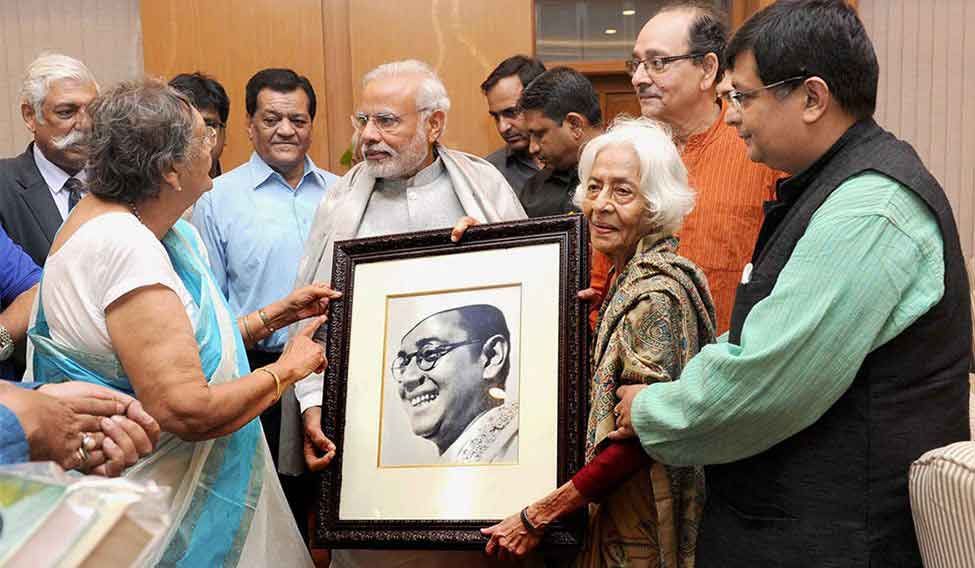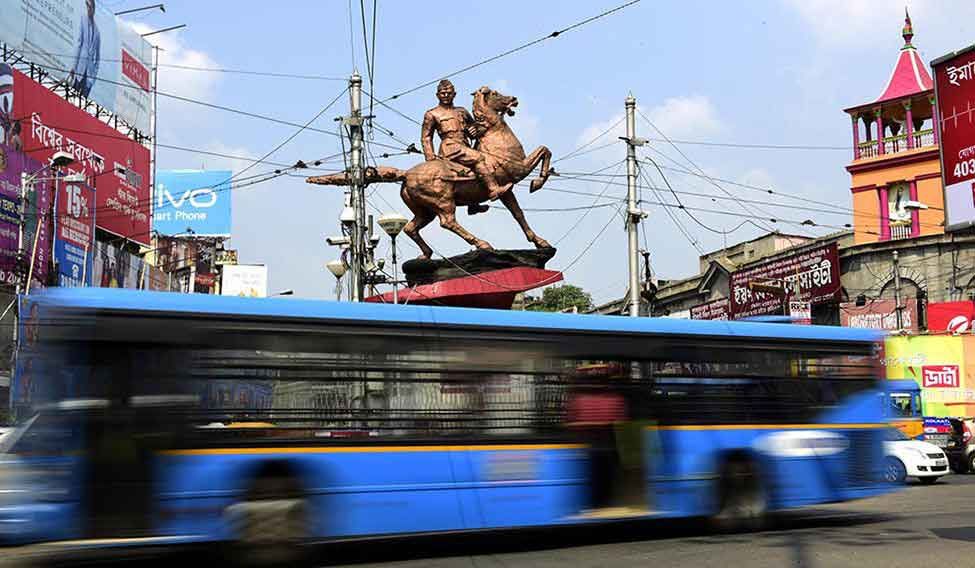Six months ago, when relatives of Subhas Chandra Bose met Narendra Modi in Kolkata and asked for declassification of the secret files related to the revolutionary leader, the prime minister's response was not too enthusiastic. Modi, who was desperate to get important bills passed in Parliament, knew that declassification would result in a political controversy. “Yes, I am politically opposed to the Congress. But I will have to govern peacefully,” was his reply, according to those who met him.
On October 14, however, when a 100-member team, comprising 65 members from the Bose family and 35 activists, visited Modi in New Delhi to repeat their demand, he made a U-turn. He announced that he would declassify all files related to Bose. The process would start on January 23, Bose's birthday. Since the files are voluminous, said to be running into tens of thousands of pages, a high-level committee would study them and would release information gradually. Modi said he would also request leaders of Japan, Russia, China and the UK, to release Bose files in their possession.
The decision to release the files kept by the Union government—most of them with the Prime Minister's Office, the external affairs ministry and the home ministry—came after the West Bengal government released in September all 64 files it had, although they did not throw any light on the mysterious disappearance of Bose.

Bose’s niece, Chitra Ghosh, who led the team, said she was surprised to see Modi's changed mood. “We were delighted to see him in such a vibrant mood. He accepted all our demands,” said Ghosh. Modi, flanked by Home Minister Rajnath Singh and External Affairs Minister Sushma Swaraj, gave the family a patient hearing. Chandra Bose, grandnephew of Bose, said he told the PM that the family wanted to know the truth. He said Modi told them that he “will declassify every file. For whom the decision would matter the most or would create problems, I have no idea. But that is their problem, not mine.”
Justice (retd) A.K. Ganguly, who was part of the delegation, said, “The meeting was extremely positive and the prime minister assured us of action.” When the family members asked him what could be done if it was found that important files had been destroyed by Congress regimes, Modi remained silent for a while.
“We then proposed to him that he should take up the matter with foreign countries like England, Russia, China and Japan. He turned to Sushma Swaraj for a while and declared that he would have no issues in taking up the matter with any foreign country,” said Chandra Bose.
A reason for Modi's sudden turnaround could be the possibility of political dividends. The release of the files will coincide with assembly elections in West Bengal, Kerala, Tamil Nadu and Assam. “All states going to the polls were represented in the Indian National Army in large numbers. The revelation of the files would have repercussions in these states. It would be a catastrophe for the Congress,” said Chandra Bose.
Declassification of the files would help the BJP gain politically in West Bengal. With Chief Minister Mamata Banerjee all set to enjoy the political mileage for releasing all 64 files kept by the state, sources said Modi could hardly sit back and relax. “We told the central leadership that we had to do something to offset the political mileage gained by Mamata,” said a BJP leader from West Bengal. Party leaders said the BJP's understanding with the Trinamool Congress did not help them at all.
Bose, inarguably the most popular icon in West Bengal, turned out to be the perfect one for Modi to bank upon. Although state BJP president Biswapriya Roy Chowdhury said the party's vote bank was intact, he was silent when asked why Modi and BJP president Amit Shah had repeatedly cancelled their plans to visit West Bengal. Modi's decision to release the files could well be intended to arrest the erosion of the BJP's support in the state.
The BJP has discussed with the RSS the fallout from releasing the files. It is said that the RSS had pressed Modi to release the files and discredit Congress leaders. A number of Bose family members have recently established contact with the RSS leaders as well. Another factor that forced Modi's hand was the feeling that the Congress would not help the government pass crucial bills in Parliament, especially in the Rajya Sabha where the BJP is in a minority.
The sangh parivar's interest in the issue does not seem altruistic. Though the exact nature of Bose's ties with the Hindu right wing is unknown, the recently released files throw some light on it. The files mention how the Hindu Mahashaba had asked people to join the INA and how it supported Bose's plan to free India by force. There is a report in the files, written by W. McK Wright, who was assistant director of the home department in Delhi, in which he refers to an alliance between the Shiromani Akali Dal and the Hindu Mahasabha and their support for the INA. “The Shiromani Akali Dal would support the militarisation movement of the Hindu Mahasabha as sufficient members of trained men were required to free India.... The Akalis had sent emissaries to village gurdwaras in Punjab to create pro-Japanese and anti-British feelings,” wrote Wright.
Seventy years later, another alliance between the Indian right wing and the supporters of Bose seems to be in the making.













